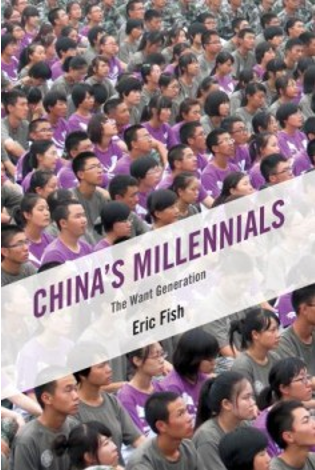From Seoul to New York, alumni of the Global Business Journalism Program at Tsinghua University are reshaping global perceptions of China.
In a six-month period, one GBJ graduate, Park Jin-Bum, produced a documentary for Korean television called “Super China,” explaining the world’s second-largest economy to an international audience. And last month, 2012 GBJ graduate Eric Fish published a well-received book about young adults in China entitled China’s Millennials: The Want Generation.
In his book, published by Rowman & Littlefield, Fish writes about a generation of Chinese youth he describes as different than any in the country’s modern history, one “brought up with lofty expectations” amid an unprecedented period of economic growth. But these young people, like all Chinese citizens, are facing the reality of an economic “New Normal” and an uncertain future in an interdependent global world.
“The idea was to present compelling personal stories of young Chinese alongside their greater context at this point in history,” he wrote recently on his blog, sinostand.com.
Fish disagrees with international critics who wrote in 2014 that the current generation of Chinese youth is “politically content, materialistic and nationalistic.”
“Like most things in China, there is indeed truth to that simple storyline, but the full picture is infinitely more complex,” he says. “What I’ve tried to do with this book is explore some of that complexity.”
A member of the so-called millennial generation, like the subjects of his book, Fish examines how young Chinese people are changing the education system, the workplace and national discussion of social issues.
Fish traveled around China for three years, talking to young Chinese born in the late 1980s and early 1990s, “trying to understand where they’re coming from and what they’re worried about,” he says. “In the book I profile youth navigating China’s education system, the workforce, contentious social issues and those who are pushing back against the status quo in various ways.”
Among the people he profiles: rural students in Henan Province struggling to get into college, a computer prodigy who authored a patriotic nationalist web site and young environmentalists in Guangzhou.
“I tried to give voice to a wide range of subjects including both urban and rural youth,” he says.
Fish told the South China Morning Post that the younger generation wants change in China, but not along the Western model.
“They might not see the solutions to these problems as the West wants them to,” Fish said. “They may not ask for Western democracy. But they are pushing change in their own ways.”
Fish, who received his master’s degree at Tsinghua three years ago, is now a writer at Asia Society New York focusing on Chinese youth, politics, education and social issues. From 2007 to 2014, he was based in China where he worked for the Economic Observer in Beijing and contributed to outlets including The Atlantic, Foreign Policy, The Diplomat and The Telegraph. He founded the blog sinostand.com and co-hosted the China Hang-up podcast.


